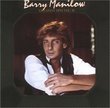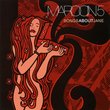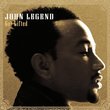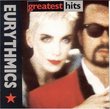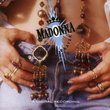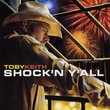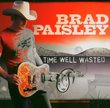| All Artists: Barry Manilow Title: Greatest Hits 1 Members Wishing: 0 Total Copies: 4 Label: Sbme Special Mkts. Release Date: 8/4/2009 Genres: Pop, Rock, Broadway & Vocalists Styles: Adult Contemporary, Soft Rock, Oldies, Vocal Pop, Traditional Vocal Pop Number of Discs: 1 SwapaCD Credits: 1 UPC: 886974789420 |
Search - Barry Manilow :: Greatest Hits 1
 | Barry Manilow Greatest Hits 1 Genres: Pop, Rock, Broadway & Vocalists
![header=[] body=[This CD is available to be requested as disc only.]](/images/attributes/disc.png?v=15401716) ![header=[] body=[This CD is available to be requested with the disc and back insert.]](/images/attributes/disc_back.png?v=15401716) ![header=[] body=[This CD is available to be requested with the disc and front insert.]](/images/attributes/disc_front.png?v=15401716) ![header=[] body=[This CD is available to be requested with the disc, front and back inserts.]](/images/attributes/disc_front_back.png?v=15401716) |
Larger Image |
CD DetailsSimilarly Requested CDs
|
CD ReviewsOn its own - there are better Manilow Compilations out there L.A. Scene | Indian Trail, NC USA | 08/26/2005 (2 out of 5 stars) "When it comes to Barry Manilow, he often gets unfair deal when it comes to both the critics and the publics. In addition to being a terrific vocalist, pianist, songwriter, and arranger - Barry Manilow provides the ability to entertain. Much of this comes from the excellent songwriting (whether it's Manilow's or third party) and the passion that is delivered by Barry Manilow. Manilow's career spans more than 30 years - but the peak of Manilow's career came in the early years of his career that took place in the mid 1970s. While there are many Greatest Hits compilations that are available by Barry Manilow. While Barry Manilow had already released some greatest hits collections, in 1989 Barry would release three CDs. I'm not sure what the logic is behind these re-compilations. While there is still good Barry Manilow music on this collection, I would question why this would be the set you would get. One thing that makes Barry Manilow's music special is his ability to work the song and "build it to a climax/crescendo". The music group Air Supply employed a similar approach with many of their songs. Like Air Supply, Manilow does a fabulous job at building the song to this "climax". It was during the "peak" period of the mid 1970s where Manilow did this better than he ever did. It is worth listening to the "build up" to a "climax" in many of the Manilow songs such as "Mandy", "Looks Like We Made It", "Daybreak", and "Can't Smile Without You". While Barry didn't write all of these songs, his style works just as well to "build up" the song as it did with the songs he wrote. The naming of this collection is something that is going to be very confusing. In 1989, Arista Records came out with three new "Greatest Hits" collections, Barry Manilow already had already released two Greatest Hits CDs. In 1978 Barry Manilow released a widely popular Greatest Hits collection called "Barry Manilow Greatest Hits" (I'll call this "Greatest Hits (1978)" to keep the names straight). This would cover Barry's material over his first seven albums through 1978. Five years later, Barry would release a follow-on collection called "Barry Manilow Greatest Hits Volume II" (I'll call this one "Greatest Hits Vol II (1983)") that would basically contain 11 songs that were done on albums following the 1978 release. Now along comes the three new "Greatest Hits" CDs (which I will call "Greatest Hits Vol 1, 2, 3 (1989)"), and they immediately use a similar naming convention - very confusing. However, what I don't like is there really seems to be no rhyme or reason for how the "Greatest Hits Vol 1, 2, or 3" were assembled. It seems that "Greatest Hits (1978) was split over 1989's "Greatest Hits Vol 1 and 2" and "Greatest Hits Vol II" was the basis for "Greatest Hits Vol 3" - with a few exceptions here and there. At least with "Greatest Hits (1978)" and "Greatest Hits Vol II (1983)", you could basically look at it and say "Greatest Hits (1978) will provide Manilow's best work prior to 1978 and "Greatest Hits Vol II (1983)" will provide Manilow's best work from 1978 through 1983. That is not the case with the 1989 CDs as the Manilow tracks are shuffled. As a result getting one of these CDs might not give you the Manilow songs you want unless you purchase one of the other two volumes. Focusing on "Greatest Hits Volume 1 (1989)", most of the songs come from the period prior to 1978. In fact, there is only one post 1978 song and that is "Some Kind of Friend" which is from Manilow's 1982 "Here Comes the Night" album. If you look at the 10 tracks on "Greatest Hits Volume 1 (1989)", you will see that the first 9 tracks resemble the order of the tracks on "Greatest Hits (1978)". With the exception of "Ready to Take a Chance Again", the order of 9 of the first 10 tracks on "Greatest Hits (1978) is exactly the same as the order of the first 9 tracks on "Greatest Hits Volume 1 (1983)". The 10th track is "Some Kind of Friend". In addition to the "Greatest Hits (1978)" and "Greatest Hits Vol II (1983)", there are two other Barry Manilow collections worth considering: "Ultimate Manilow": This is a 2002 release of 20 tracks. Once again most of the tracks are from "Greatest Hits (1978)" and "Greatest Hits Vol II (1983)". There are actually three key tracks that aren't a part of this collection: "New York City Rhythm", "All the Time", and "Beautiful Music". Those three tracks happen to be found on "Greatest Hits (1978)" "The Essential Barry Manilow": This is the most comprehensive collection that is available in one package. This Barry Manilow release contains 34 tracks. While this may contain more songs than several of the other Greatest Hits collections, it is still missing one track - "All the Time". Another thing that I don't like about "Greatest Hits Volume 1 (1989)" is that the tracks are not arranged in chronological order. With Greatest Hits collections, I prefer the tracks to be arranged in chronological order. This allows me to see how an artist has progressed during a period of time. This is clearly not the case with "Greatest Hits Volume 1 (1989)" "Greatest Hits Vol 1 (1989)" focuses on 1978 and before. My advice is if you could find "Greatest Hits (1978)" (which is out of print), then I would try to get that one first. Otherwise, you may want to consider getting the newer "Essential Barry Manilow" or "Ultimate Manilow" collections. While there is some good music on this collection, my feeling is that the "Greatest Hits Vol 1 (1989)" is only worth the investment if you are going to buy all three volumes. Overall, I don't recommend this collection simply because there are better ones out there." "Even Now i think about you as i'm climbing up the stairs" Jerry McDaniel | 01/05/2004 (5 out of 5 stars) "that's a line taken from one of my all-time favorite Manilow songs. "Even Now" was a huge Adult-Contemporary hit in 1978 back when the chart was called Easy-Listening or Middle-of-the-Road {or MOR for short}. on the pop side of things, it was a good-sized Top-30 hit. the simple fact that Manilow's long standing appeal has been with the AC audience doesn't surprise me that he was named the #1 Radio & Records AC Artist in 1989 for that publication's first 15 years in business (1974-1989) because in that time span the legend of Barry Manilow was crafted and set in motion. This 1989 CD was part of a three CD set that brought his classic hits to the CD age for the first time. Arista took 1978's 2-LP set "Greatest Hits" and the 1983 LP "Greatest Hits, Volume Two" and filled out these three 1989 CDs with selected material. each CD contains 10 songs {30 selections in all}. on volume two and three the fans are treated to two newly recorded songs {one new song on each CD} not found on the previous hits albums these songs were taken from. However, we're talking about Volume One today. This set includes 10 songs (8 were actual hits, two of them: 1975's "New York City Rhythm" and "Bandstand Boogie", were not). "Mandy", "Even Now", "Can't Smile Without You", "Tryin' To Get The Feeling Again", and "Looks Like We Made It" are all signature Manilow songs that all belong on Volume One. "Daybreak" and "It's a Miracle" are also good...i love "Some Kind of Friend" and i wish Arista would've put that song as track #2 and ended the CD with "New York City Rtythm" but instead "Some Kind of Friend" closes the CD. i'm not afraid to admit i like Barry Manilow to anyone who asks. i take pride in praising an act in pop music that actually cares for the LYRICS and not the fads or trends of the day. Manilow was a breath of fresh air in pop/rock music then and he remains a loyal supporter of the lyrics at a time when dance moves and stage antics are taken more seriously than song content."
|

 Track Listings (10) - Disc #1
Track Listings (10) - Disc #1